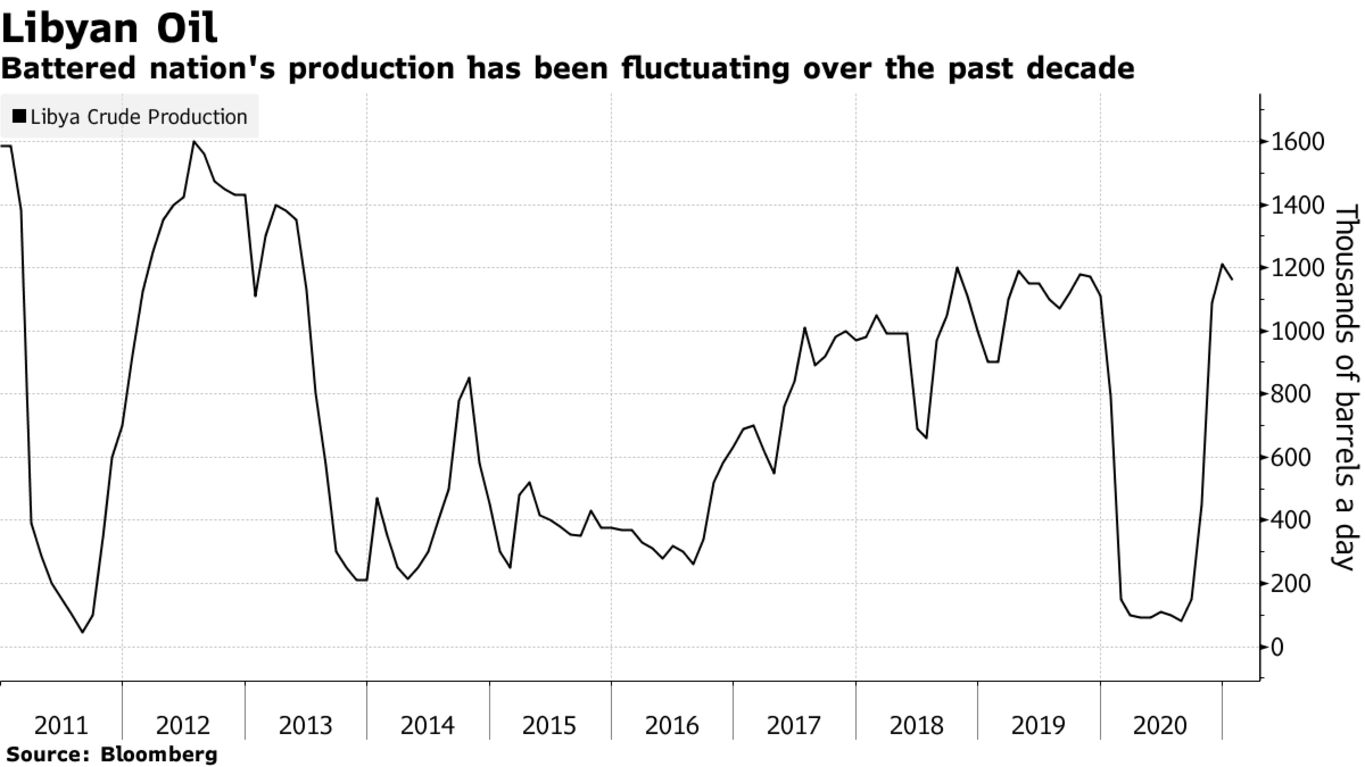Libya’s state oil producer is set to get the biggest portion of development spending in the country’s new budget, potentially aiding plans to raise output as the industry recovers from a decade of civil war. National Oil Corp. is allocated 7 billion dinars ($1.6 billion) in 2021, about a third of the total granted to development projects in the draft budget, a copy of which was seen by Bloomberg. The spending plan is the first from the country’s unified government, which was approved by lawmakers earlier this month.
Supporting NOC projects must be a priority “given what the firm had to face over the past years, from financial difficulties, military confrontation and oil shutdowns,” according to the draft budget.
Oil production in the OPEC nation has surged above 1 million barrels a day following a truce in the civil war last year. It’s now pumping roughly the same as it was before a blockade that all but shut down output in January 2020. However, the expansion is under threat because the NOC lacks funds to repair damaged and neglected oil fields, storage tanks, pipelines and ports.

Libya’s new administration is the first unified government in about seven years. It’ll have to work quickly to bridge political divides and restore key services in a country that’s been in turmoil since a NATO-backed revolt ousted dictator Muammar al-Qaddafi in 2011. The North African nation had been split between dueling eastern and western administrations until the unity government was sworn in.
The rehabilitation of the oil industry — Africa’s largest in terms of reserves — is one of the main pillars of the budget. The spending plan estimates annual oil revenues at 89.3 billion dinars, accounting for 80% of the total, according to the draft. That’s based on exports of 1.1 million barrels a day at $60 a barrel, around the same as today’s prices.
Read more: Libya Oil Boss Vows to Up Production, Work With Unity Government
Oil revenues withheld by the NOC last year amid a conflict with the central bank are estimated at 17.9 billion dinars and form part of the 2021 budget, which is yet to be approved by parliament.
The oil company insisted last year it would keep the revenues until the bank spelled out how it spent the funds and until a comprehensive political settlement could be reached. Last week, the NOC said it’s considering unfreezing the funds, potentially ending a major point of contention that had complicated Libya’s recovery from the civil war.
Other Budget Highlights:
- Total revenues are estimated at 111.11 billion dinars
- Overall budget spending seen at 96.2 billion dinars
- Around a third of that — 33 billion dinars — would be allocated to state salaries, followed by subsidies at 23.6 billion dinars
- Fuel payments represent about half of the total subsidies and are based on the central bank’s new unified exchange rate of 4.48 dinars per U.S. dollar
- Spending on electricity projects is estimated at 4.5 billion dinars
